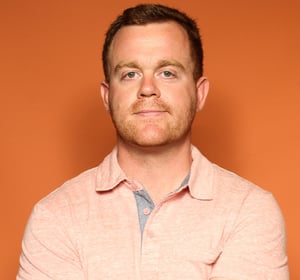 Crayon's Competitive Intelligence Spotlight is an interview series where we chat with intelligence professionals to get a glimpse into their careers and gain unique insight into competitive strategy. In this edition of the Competitive Intelligence Spotlight Series, we shine the light on Sam Rinaldo, Competitive Intelligence Analyst at HubSpot.
Crayon's Competitive Intelligence Spotlight is an interview series where we chat with intelligence professionals to get a glimpse into their careers and gain unique insight into competitive strategy. In this edition of the Competitive Intelligence Spotlight Series, we shine the light on Sam Rinaldo, Competitive Intelligence Analyst at HubSpot.
ED: What is your role, and what does your company do?
SR: I’m a Competitive Intelligence Analyst on the Product Marketing Team at HubSpot - we make SaaS solutions for all kinds of businesses to help them grow better.
ED: Can you tell me about your career path? What led you to your current role at HubSpot?
SR: I definitely didn’t have what you would call a traditional path. I joined the US Marine Corps in 2010 while I was studying Forestry (of all things) at UMass Amherst. I spent about nine years in the Marines as an Intelligence Officer, specializing in Signals Intelligence - which has to do with clandestinely collecting and interpreting communications. I grew the most as an analyst during the last few years of my military career while I was assigned as an Intelligence Operations Officer at a national intelligence agency in Maryland.
I got to do some really interesting and exciting things as an Intelligence Officer, deploying to places like Afghanistan and the Arabian Peninsula. On my last trip overseas in 2019, though, I started exploring civilian opportunities that would still leverage my skill set. As I was searching for jobs, I came across this position at HubSpot. During the interview process, I found out that the company was just standing up the program and I’d be there on the ground floor to do something new and remarkable. It was just the opportunity I was looking for, so I started at HubSpot in August 2019 - less than 30 days after getting back from my last deployment.
ED: What’s the best part of your job? Why do you love working in Competitive Intelligence?
SR: I love the energy of competitive situations. With one call or email, I can be prompted to surge support to the point of need and potentially tip the scales in our favor by providing thoughtful, thorough, and accurate information to our team - be that sales, marketing, product development, or our leadership team. It’s so rewarding to help someone cut through the fog - and when it results in a win for HubSpot it’s even better.
ED: What’s the biggest challenge you’ve faced in the competitive intelligence process?
SR: The CI shop at HubSpot is still pretty small, so the biggest challenge is always prioritizing projects. Time is often a limiting factor, so I’m always on the lookout for technology that can make our processes more efficient. Automation, organization, and crowdsourcing information are three areas that I focus on to help buy back time for tasks that absolutely require a specially trained analyst.
ED: How do you measure competitive intelligence success?
SR: We measure two broad sets of criteria to gauge success - utilization and impact. By utilization I mean interaction with CI assets like battlecards, weekly newsletters, and internal-only assessments. I track metrics like unique viewers per week to determine which competitors are of the highest interest to the company. This also helps identify which battlecards might be ready for a refresh or update. We measure impact in terms of competitive deal volume and value - the revenue we are winning or losing against competitors. I use Crayon to track utilization metrics, and our own HubSpot CRM to track impact.
ED: CI has changed so much over the years, going from strictly manual to automated, and it’s more widely practiced. How do you see CI evolving over the next 5-10 years?
SR: Even though I don’t have a crystal ball, I see a few elements of CI becoming increasingly important. CI is impacted by the same factors as other intelligence disciplines. As tools become more automated and intuitive, the gap in effectiveness between CI programs with a dedicated platform and those without will widen. As more CI programs adopt technology, that will enable more employees to play a role in the CI process - particularly in collecting discrete insights. This frees up more time for full-time analysts to get into more sophisticated projects with longer-term impact. In the next 5-10 years the markers of a mature program will be much more advanced than they are today, and what we think of “advanced” will become standard. When I think of the future, I tend to think of things like multilingual NLP analysis of competitive sales calls and AI-powered tools that automatically surface key differentiators between competitors.
ED: What is something you wish you knew earlier in your career?
SR: Intelligence is never done. What I mean is that no one can ever fully eliminate uncertainty, or be completely prepared for every possible situation. I learned this as a brand-new Intel Officer but didn’t fully appreciate it until I started working in the private sector. In the military, intelligence omissions can (and often do) have dire consequences. Moral obligation can stop an intelligence analyst from dropping a requirement that is technically outside their scope of responsibility because lives are on the line - even though it creates institutional inefficiencies. For companies like HubSpot, the list of potential competitors is pretty daunting, but there’s a bigger opportunity to weigh the costs and benefits of a specific project, battlecard, assessment, etc. Re-learning this early wisdom helped me stay grounded in data-driven intelligence and adhere to our business priorities while avoiding burnout.
ED: What programs or resources have you found to be most impactful throughout your career?
SR: Throughout my career, I’ve often returned to a well-worn copy of the CIA Tradecraft Primer (unclassified copies available online). For building an analytic mindset - both personally and for my teams - it’s the best single resource for quick and effective analysis of complex problems.
ED: What’s the best book you’ve read recently?
SR: I spend so much time these days looking at a computer, tablet, phone, or tv that even analog books can feel like a strain! I tend to listen to audiobooks most of the time - and the best one I’ve put on recently is old but gold - Walt Whitman’s Leaves of Grass. During stressful times, a little poetry gives me perspective.
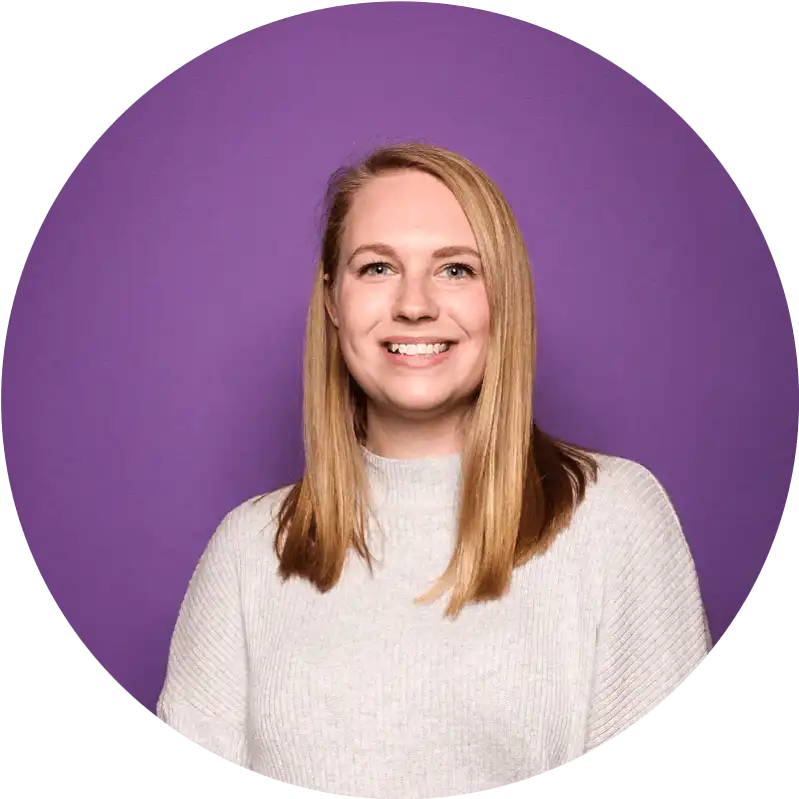
Related Blog Posts
Popular Posts
-
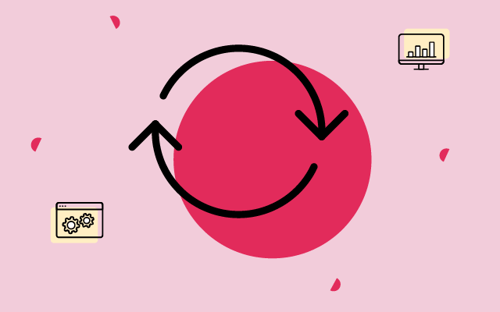 How to Create a Competitive Matrix (Step-by-Step Guide With Examples + Free Templates)
How to Create a Competitive Matrix (Step-by-Step Guide With Examples + Free Templates)
-
 Sales Battlecards 101: How to Help Your Sellers Leave the Competition In the Dust
Sales Battlecards 101: How to Help Your Sellers Leave the Competition In the Dust
-
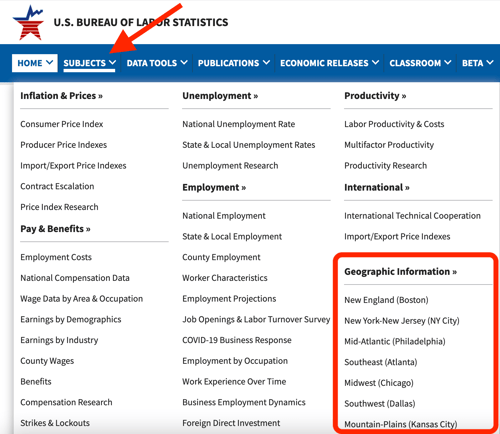 The 8 Free Market Research Tools and Resources You Need to Know
The 8 Free Market Research Tools and Resources You Need to Know
-
 6 Competitive Advantage Examples From the Real World
6 Competitive Advantage Examples From the Real World
-
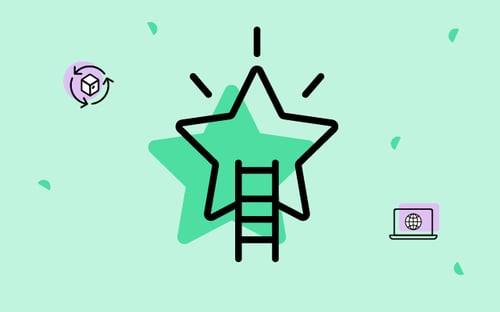 How to Measure Product Launch Success: 12 KPIs You Should Be Tracking
How to Measure Product Launch Success: 12 KPIs You Should Be Tracking
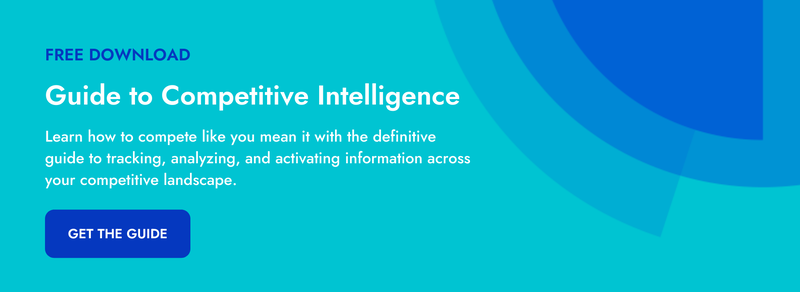



%20(1).png?width=500&name=CI%20Strategy-CI%20Audit%20(1)%20(1).png)